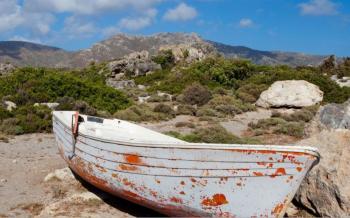Summary
With weather conditions expected to remain warm and dry in the coming week, dropping water levels have prompted British Columbia to announce a Level 3 drought rating for Vancouver Island and the Gulf Islands.
Level 3 drought conditions call for voluntary water-use reductions for all surface water and groundwater users, including residents, industry, farmers and municipalities.
While some streams on Vancouver Island, especially those backed by storage reservoirs, have adequate flows, several important salmon streams are approaching critical environmental flow thresholds for ecosystems and fish, including juvenile trout and salmon. Environmental conditions are being closely monitored in case there is a need to implement specific actions to protect salmon and other fish within streams.
If voluntary reductions of water use are insufficient to maintain flows above critical levels, the province may consider regulating water usage under the Water Sustainability Act.
Specific actions could include temporarily suspending water licences or short-term water approvals to restore flows to minimum critical levels in the affected streams. Ministry staff are contacting water users to encourage water conservation and to educate users about potential water regulation.
Water users on all islands are reminded to ensure that water intakes are screened to Fisheries and Oceans Canada standards to prevent fish from being pulled into water systems as water levels drop. Low water levels can prevent the passage of salmon and increase susceptibility to disease or death due to low oxygen and warm water temperatures.
Local water conservation bylaws may differ from provincial water conservation targets due to local supply and demand, and the availability of storage in lakes, reservoirs or groundwater. Residential, agricultural and industrial water users who are located within municipalities and regional districts are encouraged to observe local water conservation bylaws where they exist.
Water conservation is everyone’s responsibility. Many communities in B.C. have drought management plans and are prepared to deal with water supply shortages and low stream flow conditions.
Water conservation tips:
At home:
- Limit outdoor watering.
- Do not water during the heat of the day or when it is windy.
- Consider planting drought-tolerant vegetation.
- Take shorter showers.
- Do not leave the tap running.
- Install water-efficient showerheads, taps and toilets.
On the farm:
- Implement an irrigation scheduling program using real-time weather data.
- Schedule irrigation to match crop needs and soil storage capacity.
- Improve water-system efficiencies and check for leaks.
- Focus on high-value crops and livestock.
In industry:
- Reduce non-essential water use.
- Recycle water used in industrial operations.
- Use water-efficient methods and equipment.

